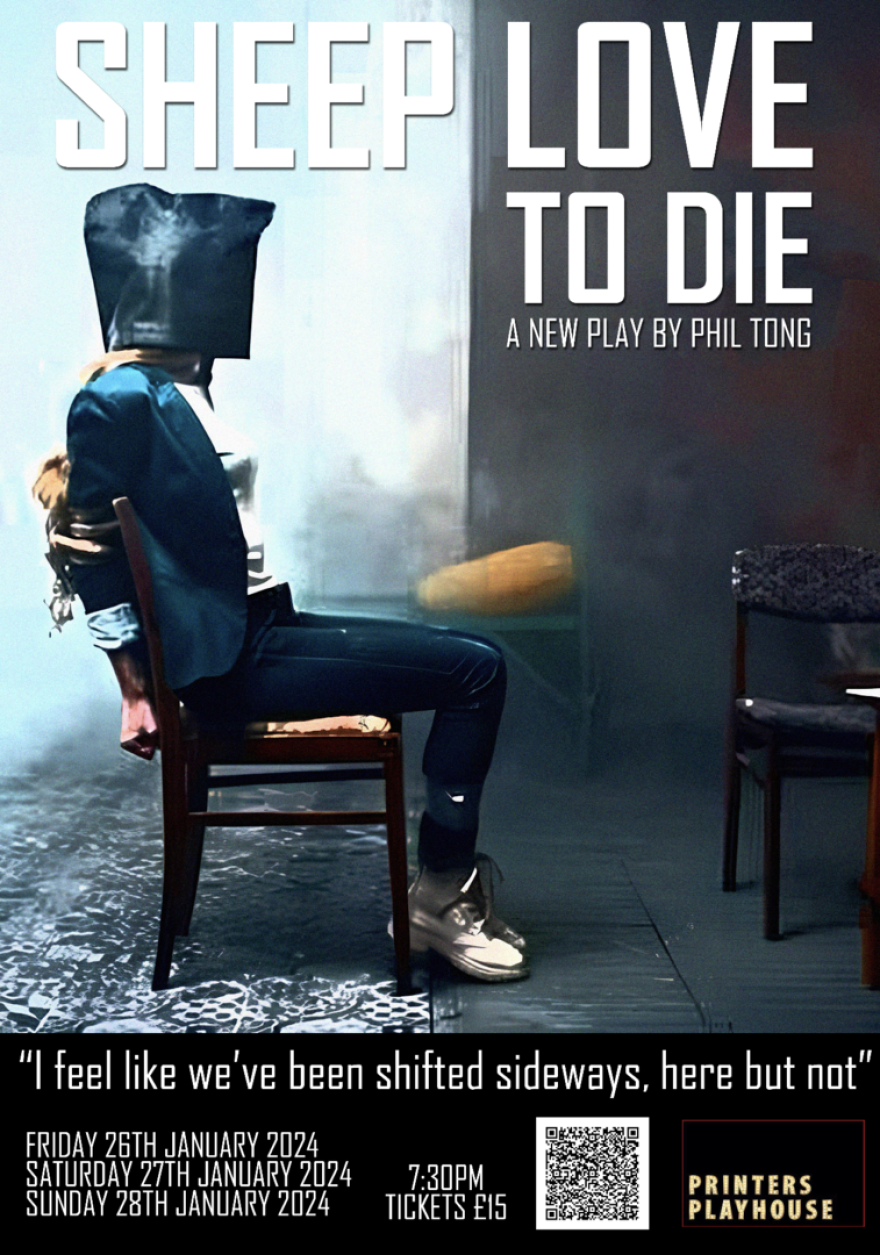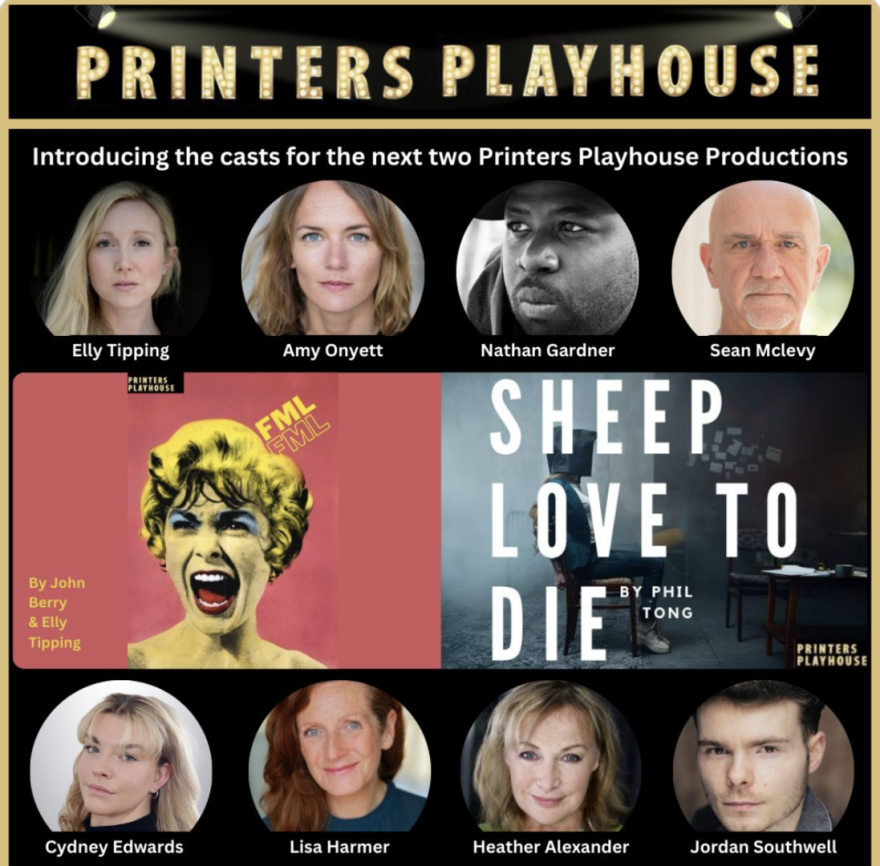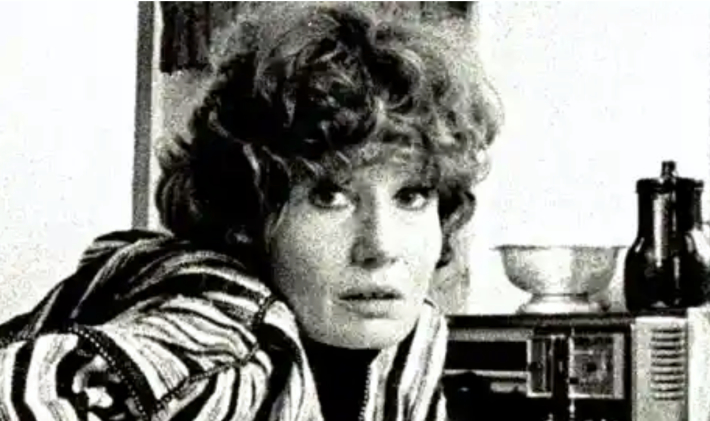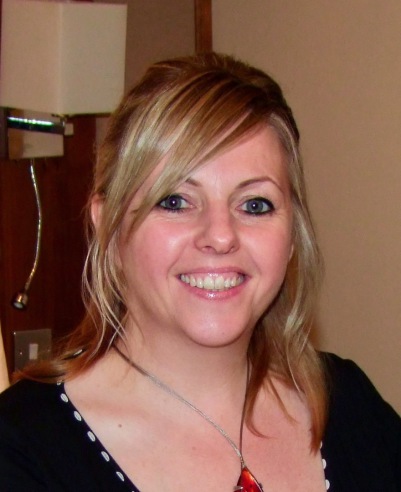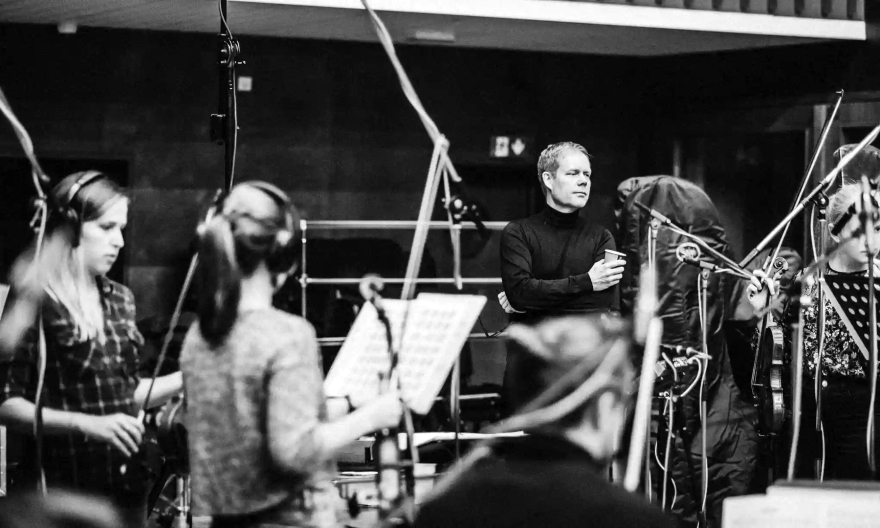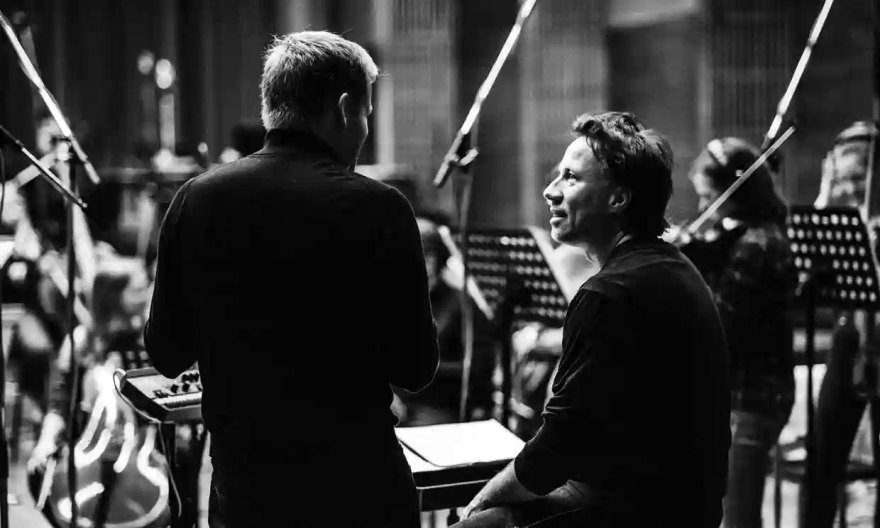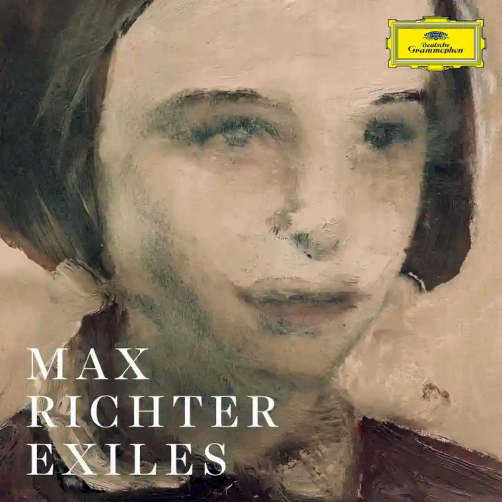Latest News
Sheep Love To Die
Haversham
Are you going to Edinburgh this summer? If so you need to check this show out, 'Haversham'. Written and performed by Heather Alexander, a talented actress who is taking on the role of Constance in my play 'Sheep Love To Die' in January, this show can be found at the Zoo Playground, 7pm from 13th to 27th August.
Don't miss it - the performance already has great reviews from previous runs.
'Sheep Love To Die'
And here are the cast for the opening production of 2024 at The Printers' Playhouse in Grove Road Eastbourne. Watch this space for information re ticket sales etc - They are a brilliant cast!
Martin, Ursula and the Professor
‘People do what they think is right. If we’re ever to understand what people do, we have to understand that.’
I'm excited to have finished a new play today, working title - 'Martin, Ursula and The Professor'.
Martin wants for nothing more than to be a zoo-keeper. Unable to relate to his parents he finds solace in his relationship with the animals and the increasingly important conjurings within his own head. Driven by his wish to communicate better with these animals he pursues, what eventually turns out to be, a very destructive course of action.
Inspired by true events in a Warsaw Zoo in 2020, this play looks to explore what it is that makes us do what we do, and what our responsibilities are to each other.
This play is now rewritten and reconceived as 'A Circus of Sorrows' to be found on this website
Liam Fernandez stars in Bush Theatre production
I'm excited to announce that Liam Lau Fernandez is playing one of the leading roles in A J Yi's exciting new 'cross-cultural' comedy 'Playlist For The Revolution' at the Bush Theatre in London. The Bush is one of the foremost fringe theatres in London and is an important venue for new writing. The reviews have been fantastic. If you would like to read them click on the links below:
https://www.timeout.com/london/theatre/a-playlist-for-the-revolution
https://www.whatsonstage.com/news/a-playlist-for-the-revolution-at-the-bush-theatre-review_1507801
It plays at theBush Theatre until 5th August 2023 and tickets are available online, although it is selling out fast. Liam is definitely a young man to watch and I'm proud that he has progressed from some excellent work at CLFS to leading roles on the 'London Stage'.
Sheep Love To Die - Latest News
This is where the magic happens!
It was recall auditions yesterday and the play has been cast. A brilliant set of actors, I have to say. I'm so excited to begin rehearsals in January. I really think they will do a great job in delivering this piece - and huge commiserations to those who weren't cast - there were some awesome people we had to leave out. Life can be tough for actors - but making the choices is no barrel of laughs either. So watch this space for news - hopefully, 'Sheep Love To Die' will be coming to a theatre near you, and if it doesn't you'll just have to come to see it at PPH!!!!!
Olwen Wymark (1932-2013)
I was sad to recently hear of the passing of Olwen Wymark. She was writer in residence at Kingston University when I was a student and was my first writing teacher, mentoring my first play ‘Elm’ which played in London and Paris and reached the finals of the Evening News Student Drama Festival at the Bloomsbury Theatre. She also introduced me to the theatre director, Andrea Morein, who I was privileged to work with as Assistant Director on Slawomir Mroczek’s ‘The Police’ at The Roundhouse in the late 1970s.
I was also a member of the first cast of ‘Find Me’, the play she wrote while at Kingston and I performed in the play at the University and at the Edinburgh Fringe in the same year. The play went on to greater success on Radio 4 and at The Orange Tree Theatre, and is still a set text for a number of GCSE Drama examination boards.
She was a brilliant woman to know and was a real inspiration in getting me started as a playwright.
Aine McGreevey
This is for all those who were with Barbara and I at Tolworth Girls.
It is with a heavy heart that I have to tell you of the passing of Aine Lark after a short but acute illness. Many of you will remember her as Aine McGreevey. She was a trainee teacher in the department during those 'glory' years and was an outstanding colleague and friend of drama at TGS. She became Head of Drama at TGS after Barbara and I left and went on to achieve national recognition as Chair of National Drama and was was awarded the Fellowship of the Royal Society of Arts.
But we will always remember her for her terrific work in the Croft Theatre with you all.
I'm a huge admirer of the music of Max Richter, so I was delighted to see this article about him in The Guardian where he talks about the Arts as political activism. It challenges us all to think about what we're making art about, and why.
Creativity is Activism
When Max Richter sat down to compose a new ballet score in 2015 he knew what he wanted to say. In April of that year, an overcrowded vessel sank off the coast of Libya, en route to Italy, killing at least 800 trapped migrants – including children aged between 10 and 12. From his (then) home town of Berlin, the crisis was impossible to ignore. The German chancellor Angela Merkel uttered the words Wir schaffen das (we can do this), but as the number of refugees applying for asylum rose, attacks on their homes did, too.
Richter’s response was instinctive: a 33-minute work titled Exiles, composed for Sol León and Paul Lightfoot’s Singulière Odyssée at the Nederlands Dans Theater, inspired by what Richter calls “the big question at that time”. Five years after it premiered in 2016, this reflective piece now forms the heart and soul of Richter’s new album, Exiles, recorded in Tallinn, Estonia, in 2019, and set to be released on 6 August. It is a retrospective collection comprised of newly orchestrated tracks taken from his back catalogue. Yet Richter tells me, on a video call from his home in Oxfordshire, that it remains relevant despite our quick-turn news cycle: “This crisis is still with us in different forms.”
The theme of exile, journeys and borders is something that Richter kept in mind when picking the orchestra to play his music, a loose gathering of musicians from Denmark, Estonia, Finland, Germany, Latvia, Lithuania, Norway, Poland, Russia and Sweden. Richter believes the Baltic Sea Philharmonic has a “peacemaking” function: “The idea of music being a shared space where people with different experiences, viewpoints and social contexts can come together and make something.” The post-Brexit isolationist position of the UK has only emboldened this ethos for Richter. “I’m a European,” he says. “These kinds of transnational problems call for collaboration, they call for a fundamental working together, and a rethinking of what boundaries and borders even mean in 2021.”
When the conductor Kristjan Järvi describes the orchestra he founded in 2008 he calls it “youthful” and “naive”; a vagabond collective that seeks to “erase the borders between east and west”. Grinning in the sunshine from his garden just outside Tallinn, Järvi reminisces about his early childhood in Estonia in the 1970s, looking out towards Finland, a beacon of freedom that lay frustratingly out of reach on the other side of the Gulf. “Those borders don’t exist any more,” he tells me. Instead, the Baltic Sea is now “the glue that holds all these EU and non-EU countries, Slavic and non-Slavic, together as a cultural unit. States reborn as an orchestra.”
Every era has a different type of exile, Järvi tells me. Only a few weeks ago, Estonians marked the 80th anniversary of what is called the June deportation, in which thousands of people were forcibly removed from their homes by the Soviet Union. “This whole idea of exiles is a story of humanity because you can even distil it down to tribalism,” he says. “I own this piece of land, you own that piece.” The Baltic Sea Philharmonic’s mission statement is to transcend these boundaries and break the rules, not only in regards to what contemporary society means in 2021, but how a traditional orchestra should mobilise and how it should create.
In 2017, they performed Stravinsky’s The Firebird entirely from memory, a technique that the Baltic Sea Philharmonic regularly adopts. Musicians often stand rather than sit, and they are frequently separated from their sections. “Why would Mozart want to be like Haydn or Beethoven like Schumann?” Järvi asks. “Every orchestra is a microcosm of society and this society is a completely non-hierarchical model of authority.” For Richter, this ideology made them the perfect orchestra to play his works: compositions that he calls “activist music”.
Can he explain what he means by that, I ask? “I think creativity by its nature is activism,” he says. “It’s about meaning, it’s about experiment, it’s about the unknown, it’s about discovery.” Each track on Exiles has been carefully chosen. Richter has raked over his musical past, reorchestrating On the Nature of Daylight, his response to the outbreak of the Iraq war, and reimagining The Haunted Ocean 1, from a soundtrack that scored writer and director Ari Folman’s animated documentary about the Lebanon war, Waltz With Bashir, in 2008.
Every musical recording is a voyage of discovery, Richter tells me. “Those human beings in that room, on that day, that’s what makes it special. It’s a laboratory.” Järvi calls it subquantum music. The Estonian conductor might be an F-sharp guy and Richter may be G-flat, but they’re still sitting on the same note. When he hears Richter’s orchestral visions he feels them as if he has written them himself. Harmonic shifts, he says, live within us all.
And yet, for all its searching, Exiles ends on a “what if” moment that is far from resolved. “Is there a better way for us to be headed?” Richter asks me. “Are we going to be able to shift things into something more humane, more sustainable and a bit more equal? That’s the big question.”
And yet another Film!
Having written a film version of ‘The Lonely Sea and the Sky’, I’ve really got the bug.
Soon after I left CLFS, I wrote a play about the displacement of families from their homes in parts of London by the process of ‘gentrification’. I also wanted to write something that reflected my view of what has happened to the Labour Party in the midst of the housing crisis.
Some who read the original play suggested that it might work better as a film or TV. At the time I was unsure about tackling that, but this year I decided to give it a go. And I’m really pleased with the results. Now I’ve just got to get other people interested in the piece.
A New Film...
On the basis that 'Nothing ventured, nothing gained,' I've decided to write a film. It is a very different business to writing for the theatre, in that so much of the narative needs to be delivered through the images on screen; still I'm looking forward to it and am trying to pick up on the zeitgeist.
Watch this space for further news!
I'm excited to share the news that Liam Lau Fernandez has just completed his first film, and in a major role too.
The film is released now (15/02/2021) and is called 'School's Out Forever'. The film is a post-apocolyptic, post viral pandemic style film and focuses on a group of young people faced with the need to survive at all costs.
The trailer is below and looks promising.

